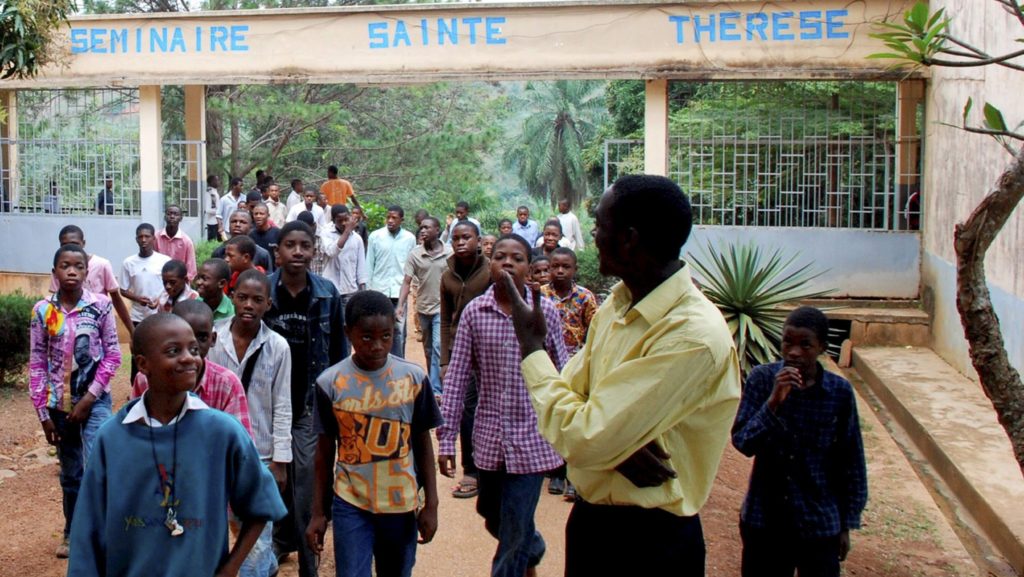As the Vatican released its first annual report on safeguarding minors Oct. 29, officials in Africa highlighted some of the cultural practices hampering child protection on the continent.
The nearly 100-page "Annual Report on Church Policies and Procedures for Safeguarding," written by the Pontifical Commission for the Protection of Minors, is the first in an annual series. It offers a review of safeguarding measures in several countries and their dioceses as well as by Catholic organizations and religious orders.
Several African countries were listed in the report's analytical section, among them Rwanda, Ivory Coast, Zimbabwe, Zambia, Ghana and South Africa. Focus on the global south may seem technical -- those countries had their "ad limina" visits planned as data for the report was being researched -- but for African safeguarding officers there is more to read between the lines.
"Some of the main challenges to safeguarding minors in the context of the church in Africa are pinned down to cultural norms and practices," Father Lowrent Kamwaza, safeguarding coordinator for the Missionaries of Africa, told OSV News in referring to the report findings.
He said important elements highlighted had to do with rejection and cultural stigmatization against victim-survivors of sexual abuse.
"This has led to many sexual abuse of minors cases (to) go unreported or underreported. Eventually this frustrates and prevents a smooth process for justice in the context of Africa," said the priest.
The report indicates, as one of the repeated gaps in country structures, the lack of data on the scope of abuse. What was also noted is the lack of understanding among Catholics on how important the issue is in general.
"The commission notes an urgent need for an increase in research into rates of abuse, as well as a continued sensitization campaign, to support the local bishops in bringing to light the true scourge of abuse," it wrote in its assessment for Ivory Coast.
Father Kamwaza highlighted the strong social pressure against reporting abuse that has fostered a culture of silence.
"In the same line, the report has also highlighted that sexual issues are still a taboo in many African countries, and consequently abuse issues ... 'flourish' in these environments where no one is ready to talk about it," he said.
George Thuku, a safeguarding adviser at the Association of Member Episcopal Conferences in Eastern Africa, known as AMECEA, agrees that culture of silence is driven directly by sexual relations being a taboo topic.
"Therefore many children would not report sexual advances and abuse by adults," Thuku told OSV News.
According to the official, there were also communities that strongly advocated for practices such as arranged marriages, forced marriages -- arrangements in which the individuals involved had no power to resist.
"This affects children who have to find themselves in sexual unions that they did not approve of. Instances of female genital mutilation strongly exist in different communities despite legal frameworks that abolish or even criminalize such" practices, he said.
Even prevention may be a tricky task across Africa, Thuku said, as it's not necessarily the parents who will want to protect their child the most.
"The child ... is likely to receive more care and attention from nonparents. Within extended families, children tend to receive care and protection from parents' kin," he said.
Across Africa, this situation "could be exploited to strengthen child protection," he said.
On the front page, the report carries an image of a baobab tree, with children seemingly admiring its trunk. The tree, native to the African savanna grassland, where the climate is dry and arid, is a symbol of life and positivity. Some of the trunks reach a circumference of 82 feet and diameter of 29 feet and can store thousands of gallons of water.
"The baobab tree is highly significant. It is a symbol of strength, with medicinal benefits," said Thuku, dubbing it "excellent imagery" for what the church is trying to achieve with its safeguarding measures in Africa.
And many countries try hard, given the cultural challenges, to safeguard children, the report noted. In Zimbabwe, for instance, a pilot safeguarding formation program was introduced in four dioceses, and in one of the dioceses, 40,551 children and 20,903 adults were trained in safeguarding, the report pointed out.
The report notes that the culture of safeguarding is a new concept in Africa, requiring sensitization, information, training and skills development, as the measures are not even close to being as thoroughly structured and audited as they are, for instance, in the U.S.
According to the report, safeguarding policy development and implementation vary across Africa. It also acknowledged the active general engagement and commitment of bishops and religious leaders, but flagged the lack of effective monitoring and evaluation, and lack of proper funding.

